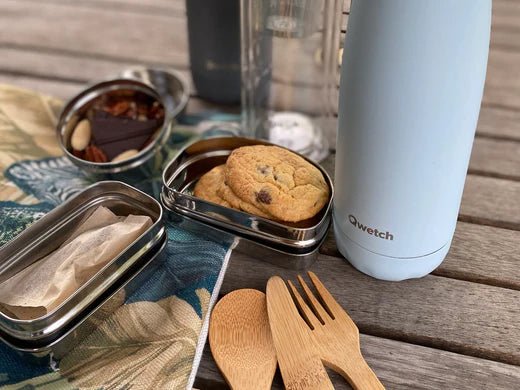Guide to Ethical Gifting
In this guide, we'll explore what ethical gifting is, the benefits, and handy tips for making thoughtful choices. Discover how gift-giving can make a positive impact on both your loved ones and the world.
- What is ethical gifting?
- What are the benefits of ethical gifting?
- Different types of ethical gifts
- Tips for making ethical gift choices
What is ethical gifting?
Ethical gifting is all about giving gifts that feel good not just for the person receiving them, but for the world too. It means choosing gifts that are made in ways that are good for people and the planet, like organic and vegan-friendly products, or products that are created through fair trade practices for example.
Instead of just buying things without thinking or just for the sake of it, ethical gifting is about being more conscious and curious about what we buy - where it comes from and what it's made of.
Essentially, it’s all about shopping thoughtfully, choosing items that matter, and showing we care about more than just the gift itself.
What are the benefits of ethical gifting?
Ethical shopping is a powerful way to create positive change. When we choose ethical gifts, we're conveying a deep sense of care to both the recipient and the environment whilst supporting brands that do right by us and the planet.
Our ethical choices can also have a ripple effect. It can inspire the recipient to join in on this mindful way of shopping, making them think twice about what they're picking out when they next buy a gift.
By practicing ethical shopping, you become an active participant in creating a more fair, sustainable, and responsible global marketplace.
Different types of ethical gifts
So, what makes a gift ethical? Let’s take a closer look at some examples of products and their ethical credentials...
 |
Fair TradeThe Fairtrade mark on products indicates that that the growers or workers have been given fair pay and treatment for their contribution to the making of the product. Accessories from brand Lua are hand made by skilled artisans through a women's fair trade project in Vietnam. The regular work enables women from disadvantaged backgrounds to improve their families’ living conditions and send their children to higher education. The work is also flexible, enabling them to learn new tailoring skills whilst continuing with their education if required. |
UpcycledUpcycling is the process of transforming discarded materials and objects into something new and useful. It is a way to reduce waste, reuse resources, and create something unique. These washbags from My Doris are handmade from patchwork pieces of vintage cotton quilt blankets and these tote bags from Cycle of Good have been repurposed from unused tents that would otherwise have gone to landfill. |
 |
 |
RecycledOpt for gifts made from materials like infinitely recyclable glass, which reduces energy usage and raw material demand. Recycled paper gifts, though limited in recycling cycles, help cut virgin pulp and waste paper, conserving energy. Also look out for items crafted from recycled plastic bottles (rPET), an emerging trend transforming millions of bottles into gifts - take our range of Kind Bags for example - each reusable bag has been made from recycled plastic bottles. |
BRITSHBy buying British you can ensure the miles a product has travelled are minimised, and at the same time supporting British Industry – with the employment and community benefits it brings. At Green Tulip we buy British whenever we can – and if there is a choice between two similar products - one British made and one made in Australia for example - we will always try to choose the British one. |
 |
Tips for making ethical gift choices
Whilst you can shop with peach of mind that everything we stock at Green Tulip is ethically sound, what about those times when you're shopping from other retailers or on the go? Here are a few tips to help you choose the right products.
- Look for labels on products like Fair Trade, Organic or B corporation.
- Plastic - evaluate the amount of plastic used in the product itself and the packaging.
- Research the brand - learn about the brand's values, commitments, and practices.
- Recyclability - choose products that are recyclable.
- Support small businesses and look for locally made or sourced products.
More tips for choosing the best gift.
- Reusables like coffee cups and shopping bags make a great gift as they'll be used frequently and last longer.
- Ask the recipient what they want and avoid buying an unwanted gift that might not be used.
- A gift voucher is also a good option as they can choose exactly what they want.
- Quality over quantity, instead of buying 3 little gifts, invest in 1 well-made gift.
And if you're looking for gifts on a budget, why not check out second hand shops and vintage stores for unique finds. Try your hand at a DIY gift such as a personalised photo albums or a knitted scarf. Instead of a physical gift, spend time with that person - a picnic in the park, a movie night or homemade dinner.
We believe that choosing ethical gifts doesn’t need to be expensive, we have beautiful gifts that cover all budgets - take a look for yourself!




